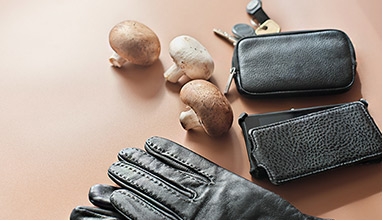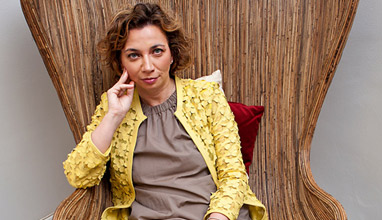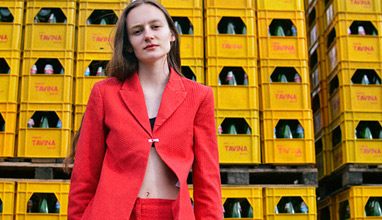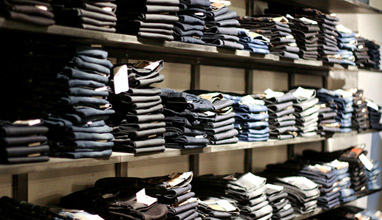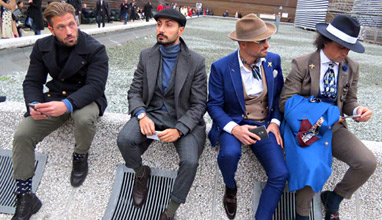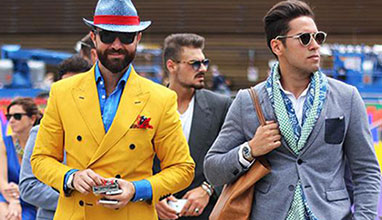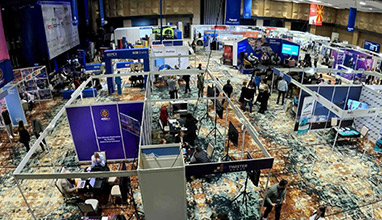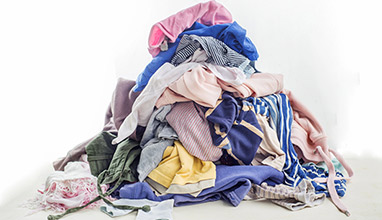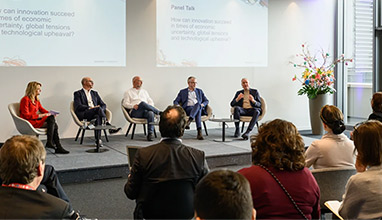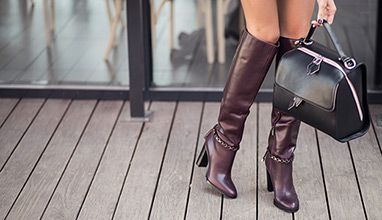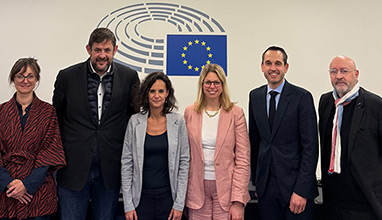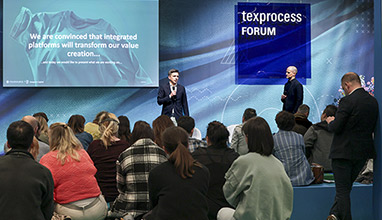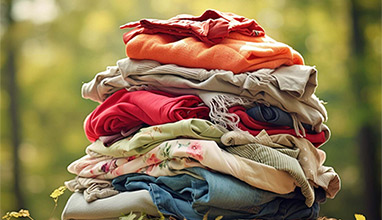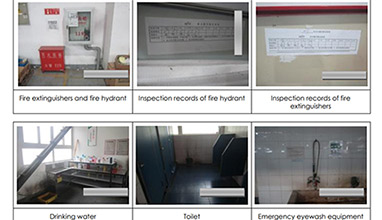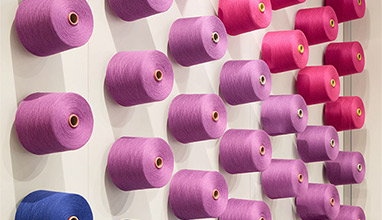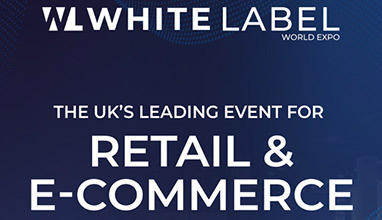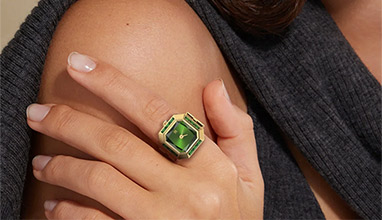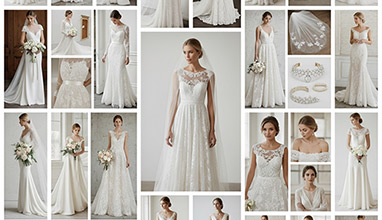Antoinette Russell about what REAL ethical fashion is
 • Please, tell me more about yourself. What is your experience in the fashion business?
• Please, tell me more about yourself. What is your experience in the fashion business?
I am a 53 year old stay-at-home mother of 4 children (ages 20,19,17,9). Before my second child was born, I had a successful job in the computer industry but chose to give up my career to be home with the children. I currently write a blog about my recovery as a Shopaholic ( www.overcomingovershopping.com ).
My experience in the fashion industry has strictly been as a consumer, but I am the ultimate consumer. I love fashion and although I prefer higher end designer brands, I have shopped in a multitude of stores…from Target to Neiman Marcus. I am currently a recovery shopaholic so you could say I am quite the retail expert!
• What is ethical fashion for you?
Over the past year I have begun to dig more deeply into this subject, and today I have a different opinion about what ethical fashion is than I did a year ago. Prior to a year ago, I would have said that ethical fashion was 2 things:
1) Clothing and accessories that were made without cruelty to animals. So basically I considered Faux Furs and Vegan leathers to be considered “ethical” (If it were important to a person to ensure animals were not harmed).
2) Quality Clothing. I avoided clothing made in China because I felt the quality of it would be poor.
I never had any idea the amount of waste fashion incurs, or the resources needed to produce it. Most importantly, I did not realize the mistreatment of humans that still occurred. I thought that sweatshops and child labor were a thing of the past!
Now, I have learned so much more about what REAL ethical fashion is. Now I feel that the most ethical fashion producers work to reduce the waste, use less resources, use recycled fabrics, and treat all the humans involved in production fairly with proper worker conditions and pay. Since I eat organically, it is a plus (but not a must) if the cotton clothing I purchase is organic too.
• Are ethical fashion and sustainability more important today?
I do believe they are more important today because we, the consumers, are purchasing more fashion items than ever before. Long gone are the days when women made their own clothing or had a tailor make their clothes. People are no longer buying clothing that is made to last! I still have a sweater my mother wore in the 1950’s and you would never know it! The quality was so good that you would think I bought it recently! Today people are happy to buy cheaply for each season and discard. This only creates more waste and uses more resources for the production of new cheap clothing.
• Do you think that industry professionals and consumers are becoming more demanding on these issues?
I hope so. I believe the word is starting to get out there about the various problems in the fashion industry. Over a year ago, I had not heard of “Fast Fashion” and now I have seen it on multiples blogs and even fashion YouTubers have mentioned it. However, I would not say that all consumers are demanding. Most people would like to make a difference, but don’t really know how. People are busy in their lives and don’t have the time (or desire) to write letters or place calls with Fashion Companies. They just don’t know what more they can do.
Many don’t even know how to tell which fashion labels are the most sustainable! I only learned by taking the time to research it for a blog post I wrote, but even then there is still so much I am not aware of.
I think many people would say they’d like to buy ethical, sustainable clothing, but fear it would NOT be fashionable.
When I was first researching this, I assumed that sustainable clothing would only be a very boho, hippie style or just plain boring styles like organic cotton shapeless items! I know now that it exists for all styles…trendy, boho, classic, etc.!
• Do you think that the model of two seasons a year is dying and new trends emerge every week?
I don’t know if I’d say every week, I feel new trends still arrive twice a year. But I’m referring to trends as being say pointy shoes, or ruffles, or wide leg pants. These trends just get incorporated a bit differently depending on the season. However, I do feel that stores seems to have new collections…new arrivals..so much more frequently! I may not yet have received an online order when the retail store is emailing me about their latest and greatest new “must haves”! I’ll be thinking "didn’t I already purchase all the “must haves”? There’s more? “
• How to educate the end consumer how important it is to support ethical fashion brands rather than fast fashion?
Honestly, we need more blog and youtube “influencers” to get on board. But likely they won’t since they are getting the big bucks for getting people to continue buying! Buy if we can get some of them to represent sustainable brands more and explain why, then perhaps it will catch on. More leaders in the fashion industry who have influence over consumers (such as celebrities or popular magazines) are needed to get on board and then spread the word.
• How to "cure" people from the desire of overshopping and overspending?
As a recovering shopaholic myself, first people need to recognize they have a problem. I know many overshoppers who don’t even realize they have a shopping problem. Once someone is ready to get help I would recommend therapy with someone who is trained in shopping addictions. There is no pill, no magic elixir and no one is really ever cured. You just learn how to deal with the shopping urges and how to learn to shop mindfully. But even with all the therapy I’ve received, I still have weak moments where I spend too much. It’s a lifetime journey.
• Do you support any ethical fashion initiatives?
The only fashion initiative that I know of is the “Fashion Revolution”. But to be honest, besides making more ethical fashion purchases myself, I am not certain how to go about supporting any existing initiatives.
• How can slow fashion brands adapt to the industry changes and the competition from fast fashion companies without compromising quality, sustainability and ethical issues?
I believe there is still a strong market for slow fashion. Not everyone enjoys or shops for cheap, low quality fast fashion clothing. I do not have any idea what the cost would be to any company to change their production process to become more sustainable. I’d like to see companies be rewarded by the government (perhaps tax incentives?) to implement production methods that reduce waste and resources.
• In your opinion, is the "see-now buy-now" approach one of the solutions for competitiveness of slow fashion brands? Is it getting more and more popular among them?
Yes I do believe that the “see-now buy-now” falls in line with today’s eager consumer who wants what they want immediately. Certain slow fashion brands have had success implementing “see-no buy-now” so therefore I don’t see it going away any time soon. It may morph into something else, but things are definitely changing.
• Who sets the fashion trends nowadays - fashion designers, brands, fabric producers or bloggers and influencers?
I still believe that fashion designers set the trends but influencers put those trends in motion. Fashion designers are the creative minds. For example, they are the ones who can look at nature and then translate the colors or the experience onto the runway. I think the fashion industry is beginning to see the power and effect an influencer can have. I personally have bought many clothing items after seeing them promoted by a Youtube influencer.
• What do you think is the future of fashion?
I do believe that although it may take some time, that people will start to understand the need for more sustainable fashion and it will become the “norm”. Although there will likely always be cheap fast fashion available, I do believe as consumer awareness rises and more demands are made for higher ethical fashion, the fast fashion companies will be forced to improve their standards.
Hits: 14943 | Leave a comment




